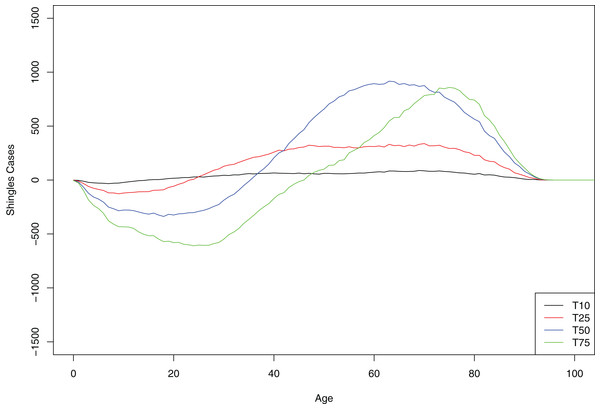
CHICKEN POX VACCINE AFTER EFFECTS FREE
:no_upscale()/cdn.vox-cdn.com/uploads/chorus_asset/file/23907585/GettyImages_1684639.jpg)
It is important to know that it is safe for children with egg allergies to receive the MMRV vaccine. Immunisation is the best protection against measles, mumps, rubella and chickenpox. Immunisation with MMRV vaccine at 18 months gives very young children early protection against measles, mumps, rubella and chickenpox. This is due to an increased risk of febrile convulsions in children under four years of age who receive their first dose of MMR as MMRV. The government funds one free dose of chickenpox vaccine and a second dose can be purchased on prescription.Īny person with a reliable history of having had a chickenpox infection is considered immune and does not require the vaccine.īecause of the potential for serious complications from infectious diseases in young children, especially measles, the first dose of the MMR vaccine is given at 12 months of age, without the varicella vaccine.
CHICKEN POX VACCINE AFTER EFFECTS SKIN
They have fewer skin lesions, a lower fever and recover more quickly. Immunised children who get breakthrough chickenpox generally have a much milder form of the disease. Breakthrough chickenpox occurs when people who are immunised against chickenpox get the disease. Research shows that two doses of chickenpox vaccine in children provides increased protection and reduces the risk of 'breakthrough' chickenpox in children under 14 years of age. Vaccination against chickenpox requires one dose to help protect against serious complications associated with chickenpox and to protect from developing shingles later in life. Vaccination against measles, mumps and rubella requires two doses of vaccine. Immunisation against these four diseases can be given in the form the MMRV combination vaccine, or the MMR combination vaccine and a single vaccine for chickenpox, depending on your age. Accessed June 25, 2022.The Immunise Australia Program External Link provides immunisations against measles, mumps, rubella and varicella (chickenpox). Centers for Disease Control and Prevention. Vaccination for the prevention of shingles (herpes zoster). In: Harrison's Principles of Internal Medicine. Shingles (herpes zoster): Clinical overview.In: Mandell, Douglas, and Bennett's Principles and Practice of Infectious Diseases. Chickenpox and herpes zoster (varicella-zoster virus). MMWR Morbidity and Mortality Weekly Report. Use of recombinant zoster vaccine in immunocompromised adults aged ≥ 19 years: Recommendations of the Advisory Committee on Immunization Practices – United States, 2022. National Institute of Neurological Disorders and Stroke. It's not intended to treat people who currently have the disease. The shingles vaccine is used only as a way to prevent shingles. Are pregnant or trying to become pregnant.Have a weakened immune system due to a condition or medication.Have had an allergic reaction to any component of the shingles vaccine.Talk to your health care provider about your vaccination options if you: Studies suggest that Shingrix offers protection against shingles for more than five years. And it will likely lower your risk of postherpetic neuralgia. But this vaccine will likely reduce the course and severity of the disease. The shingles vaccine doesn't guarantee that you won't get shingles. Some people also experience fatigue, headache and other side effects. The most common side effects of the shingles vaccine are redness, pain and swelling at the injection site. It's given in two doses, with 2 to 6 months between doses. Shingrix is a nonliving vaccine made of a virus component. Shingrix is also recommended for people who are 19 years of age and older who have weakened immune systems due to disease or medication. People who've had the Zostavax vaccine in the past or don't know whether they've had chickenpox may also receive the Shingrix vaccine. Shingrix is approved and recommended for people age 50 and older, whether they've had shingles or not. The Zostavax vaccine is no longer available in the U.S., but other countries may still use it. People who are eligible should get the Shingrix vaccine, which has been available in the United States since its approval by the Food and Drug Administration in 2017.

A shingles vaccine may help prevent shingles.


 0 kommentar(er)
0 kommentar(er)
